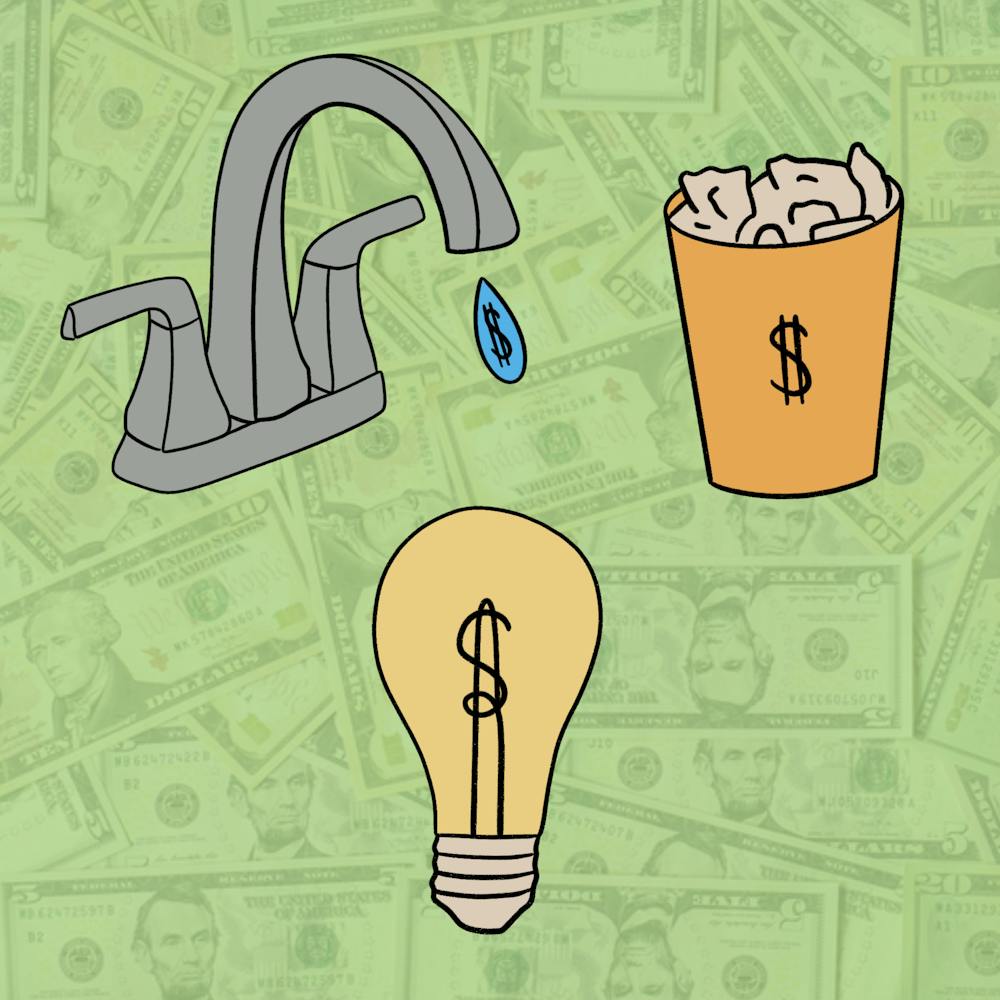For more than a year, Estefania Torres was paying over $500 for her utility bill — almost the cost of her monthly rent. Each month, as she helplessly looked at her bill, she was driven to tears.
Then, her landlord replaced her AC unit, and her bill dropped to $200.
“It was cut by half just with getting the new AC unit — that’s what made me so angry,” the 24-year-old Gainesville resident said.
Torres is one of many other Gainesville residents who depend on Gainesville Regional Utilities, but living in a low-income neighborhood makes her disproportionately affected by current and future rate increases that GRU continues to implement.
GRU’s average cost for electric, water and wastewater went up by 4% in October. The average cost for GRU’s electricity went up about $6, and the total bill rose almost $10. From 2023 to 2027, electrical rates will go up 3% and wastewater will go up 5% yearly, according to GRU.
Gainesville’s utility rates were the third highest of all utility rates in the state in August, according to the Florida Municipal Electric Association. Williston, which is about 20 miles away from Gainesville, had the lowest rates in Florida. Orlando also had lower rates than Gainesville, coming in at No. 20 of the cities surveyed.
According to the U.S. Department of Energy, low-income households tend to spend a larger portion of their income on utilities than other households. One way to decrease energy costs is through efficient appliances and proper insulation.
But as a renter, that’s something Torres had no control over.
To try to cut back on energy costs, Torres kept her house at 78 degrees throughout the day. But because of her inefficient AC unit, her GRU bill still came back as $500 until she got her unit replaced.
“The people who need the help most, the people who are struggling the most, the most disadvantaged people in our society, are the ones that are really facing the brunt of GRU’s mistakes,” Torres said.
Taylor Smith, a 20-year-old Gainesville resident, shares a one bedroom, one bathroom apartment with her fiancé. She said her bills have recently doubled from $100 to almost $200.
The couple turns off appliances like the AC when they’re at work, and they’ve stopped cooking at home and instead use a grill to keep their electric bill down.
“Their rates are ridiculous,” Smith said. “When we first started using GRU, it was pretty reasonable. Now, all of the sudden, it’s just outrageous.”
Kinn’zon Hutchinson, GRU’s chief customer officer, said the rate increases affect everyone, regardless of income. But GRU provides assistance for residents who have difficulties meeting their monthly bills, such as providing payment plans and extending payments.
“We're not in the business of disconnecting anybody off the utility,” Hutchinson said. “We're here for our customers.”
GRU also has a program offering low-income individuals free upgrades to increase the efficiency of their homes, such as through installing insulation and replacing inefficient appliances. However, residents need to be homeowners to qualify for the program, meaning renters do not qualify.
Hutchinson said the rates are competitive when things like water costs are cut out. However, GRU spokesperson Rebecca Allison was unable to provide data to support this claim in time for publication.
Matt Howland, a candidate for Gainesville City Commission’s open At-Large seat this November, wants to lower GRU’s utility rates. Other candidates, including Cynthia Chestnut, Patrick Ingle and Scherwin Henry have also discussed GRU rates.
While door knocking for his campaign, Howland said he’s spoken to many fixed-income families who struggle to pay rate increases. People who depend on social security or who are single-income parents may have to sacrifice paying for other things to make up for the rising rates, he said.
“I think it’s very easy to get caught up in this idea of a couple dollars here, a couple dollars there, together we can all chip in and we can make this happen,” Howland said. “We can be cheerleaders and try to put a positive spin on it. But that’s not very pragmatic.”
Contact Meghan at mmcglone@alligator.org Follow her on Twitter @meggmcglone.

Meghan McGlone is a UF junior majoring in journalism and English, and this year she’s the City and County Commission reporter. In past years, she’s served as the University Editor, the Student Government reporter, and other positions. Her favorite past time is eating gummy worms and reading a good book.






